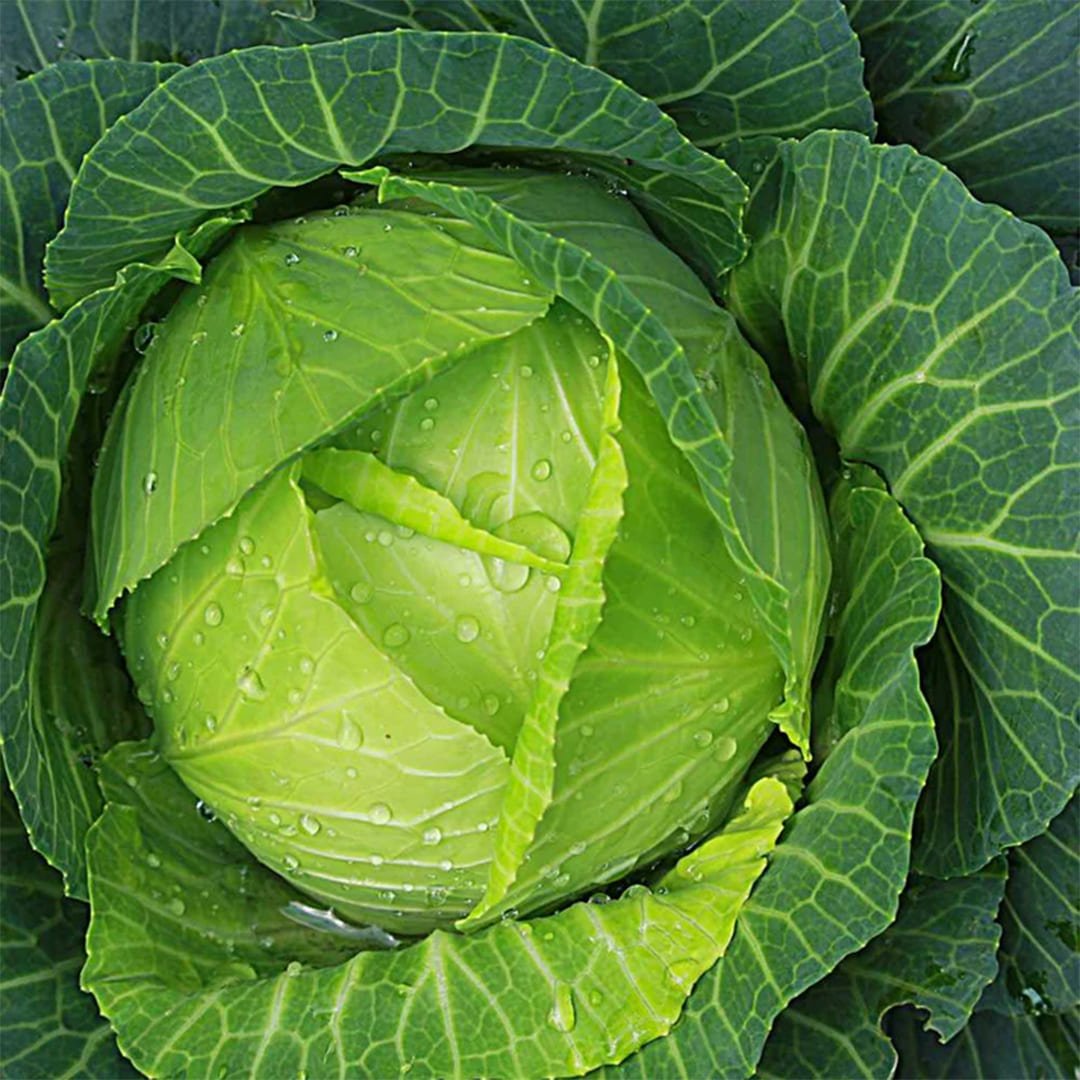Cabbage Seeds For Organic Gardening
Original price was: ₹85.00.₹39.00Current price is: ₹39.00.
Product Information:
- Number of organic Cabbage seeds (Patta gobhi ke beej): 200 Seeds
- Untreated, Non-Hybrid
- Where to grow: Balcony or terrace garden
- Mode of sowing: Sow the seeds 0.5 – 1 cm deep in a seedling tray Container, or Pot. Transplant in 25 to 30 days
- Germination Time: 6 to 15 days from sowing
- Germination temperature: 13-25°C
- Harvesting: 12 to 13 week
- Sowing season: Spring and Winter
- Plant vigor: Strong plant
Product Description
Cabbage is a leafy vegetable crop grown for its dense leaf heads. Cabbage, which is sometimes confused with lettuce due to its similar appearance, is a member of the cruciferous vegetable family. Cabbage contains a chemical that can protect against the harmful effects of radiation. Sulforaphane, a compound found in cabbage, can aid in cancer prevention. 81.5 micrograms of vitamin K are contained in half a cup of cooked cabbage. Additionally, cabbage is vitamin and mineral-rich. Cabbage is also known as Patta gobhi, a leafy vegetable that contains a good amount of nutrition. Untreated Cabbage Seeds are very easy to grow in containers or pots, Cabbage needs 6 to 8 hours of daily sunlight; however, it can tolerate partial shade.
Uses of Cabbage
- Despite its low-calorie content, cabbage boasts an impressive nutrient profile.
- Cabbage is a nutrient-dense crop that is low in calories and high in vitamins, minerals, and antioxidants.
- It can assist in reducing inflammation
- Cabbage contains potent antioxidants that can aid in inflammation reduction.
- Cabbage is vitamin C-rich
- It aids in digestion improvement. Cabbage contains insoluble fiber, which helps maintain a balanced digestive system by supplying food for beneficial bacteria and encouraging daily bowel movements.
- Cabbage is high in anthocyanins, which have been shown to lower the risk of heart disease.
- Consuming more potassium-rich foods, such as cabbage, can assist in lowering high blood pressure levels.
- Cabbage contains a significant amount of soluble fiber and phytosterols. These compounds have been shown to lower LDL cholesterol levels.
Cabbage Plant Care Tips
- Sunlight: Cabbage plants need 6-8 hours of full light in winter days.
- Water: Give 3-5 cm water every week to your cabbage plant.
- Soil: Use well drainage and nutrient rich soil with 6.5 to 6.8 ph.
- Temperature: Ideal temperature for growing cabbage plants is between 10- 30 degree Celsius (50- 85 degree Fahrenheit).
- Fertilizer: After 15 days of transplanting, apply balanced liquid fertilizer such as fish emulsion or hand full of vermicompost to each cabbage plant when they start to develop new leaves and forming head .
- Mulch: Mulch thickly to your cabbage plant for retain moisture and regulate soil temperature.
- Common pests and disease: Some common insects which are generally found in cabbage plants are caterpillars, cabbage loopers, white flies, flea beetles, root maggots, cutworms and aphids. Cabbage plants are infected by some diseases like white spot or leaf spot, black rot, downy mildew, clubroot and blackleg etc. Look for early sign of fungal, insect or other infections spray organic pesticide Neem oill to cure these symptoms.







